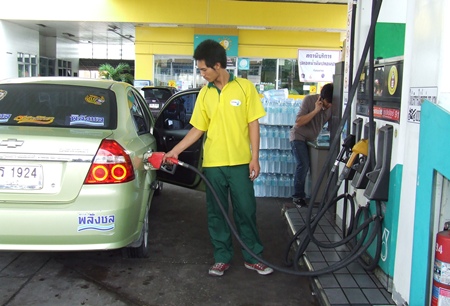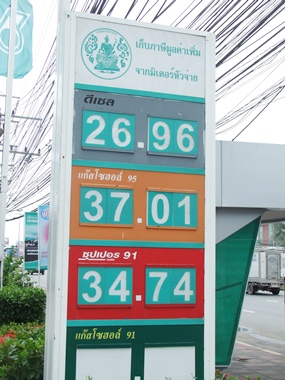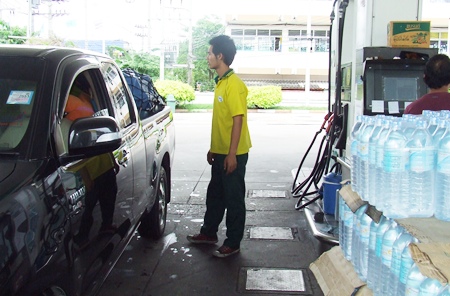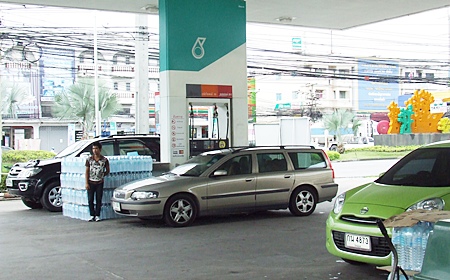The government’s move to cut oil-subsidy taxes is fueling a petrol party in Pattaya, with drivers racing to top off tanks and gas station owners ordering new shipments with baht signs in their eyes.
Attempting to fulfill a campaign pledge to reduce the nation’s cost of living, Prime Minister Yingluck Shinawatra reduced the Oil Fund levy on diesel fuel and octane-91 and octane-95 gasoline, immediately slicing the price for gas by as much as 8 baht per liter. With the government saying the move is just temporary, motorists sped to the nearest pump to stock up.
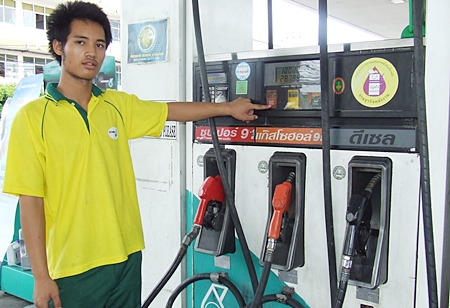 Pathawee Duakhanad, a Petronas pump employee, shows how cheap petrol has become.
Pathawee Duakhanad, a Petronas pump employee, shows how cheap petrol has become.
Driver Frothawee Duankhanaan, one of the many queued up at the Petronas station on Central Road this week, said he supports the government’s move. Frothawee said he normally spends about 1,300 baht on a full tank, but today spent about 200 baht less.
Station attendant Pathawee Duankhanat had his hands full. He said cars, trucks and motorbikes backed up all the way to Sukhumvit Road. Station manager Phathanamaat Pradupyaad said he’s ordered another 20,000 liters of fuel to quench drivers’ thirsts.
Since Aug. 27, prices for octane-91 in Pattaya fell 7.17 baht, octane-95 fell by 8.02 baht and diesel by 3 baht. Critics contend, however, that while most people will applaud the populist move to reduce petroleum’s hit on their wallets, the move is destructive to both the nation’s economy and environment and undermines Thailand’s efforts to promote alternative fuels.
The Oil Fund was created in March 1979 to ameliorate the impact of future global oil price increases on the Thai economy. When world oil prices rise, Oil Fund taxes collected earlier are used to minimize upward price adjustments. Stopping collection of Oil Fund taxes runs counter to the concept that drivers should pay for petroleum subsidies that stabilize the price of not only gas and diesel, but liquefied petroleum gas and liquefied natural gas for vehicles.
Without Oil Fund collections, they added, general taxes on drivers and non-drivers alike will have to be raised to support the fuel subsidy.
Critics doubt the move dubbed temporary by the Pheu Thai-led government will remain so, saying ultra-populist policies are hard to eliminate once implemented. They cited the prior government’s supposedly “temporary” free electricity and tap water for low-income families that remain ongoing.
Further, they say, the nod to voters destroys the price competitiveness of gasohol and other alternative fuels, which are now almost the same price as gasoline. With less incentive to conserve energy, people will stock up on cheap gas, curbing the nation’s growing adoption of cleaner fuels and retarding efforts to combat pollution and global warming.
